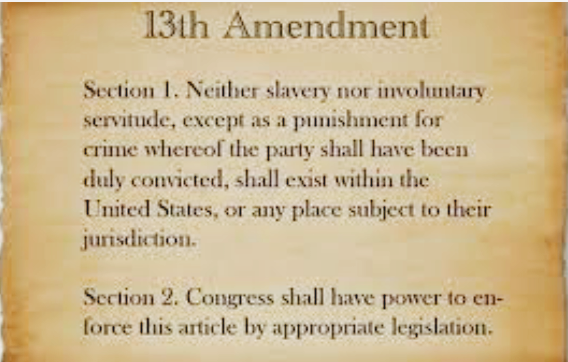“Neither slavery nor involuntary servitude, except as a punishment for crime whereof the party shall have been duly convicted, shall exist within the United States, or any place subject to their jurisdiction”
— 13th Amendment of the United States Constitution
Interestingly the “Free World” fails to live up to its name as the United States leads the world in the number of individuals who are incarcerated.
Currently there are 655 prisoners per 100,000 of the national U.S. population. In the federal correctional system, 38 percent of the incarcerated persons are black even though African Americans make up only 12 percent of the total United States population. Blacks also outnumber White and Hispanic prisoners in state facilities.
The diproportionate numbers are certainly not a signifier that Blacks are more dangerous and more prone to criminal behavior than other groups. What the numbers do suggest is that there is a systemic issue dating back to the 1600s when settlers quickly determined that the enslaved Black people were inhumane, criminal creatures. Without any hope of due process, they were immediately sentenced to “hard labor for life.” Even with the passage of the 13th Amendment, Blacks just can’t seem to catch a break. Everything from the Black Codes to the Jim Crow laws, the “War on Drugs” to Driving While Black has been designed to unfairly and disproportionately target the Black population.
Some say the incarceration epidemic has created a modern day slavery scenario due to prison labor practices. Inmates work for wages that are far below minimum wage. When used to supplement court costs, fines and family support, the net amount earned is meager. These practices are not too far removed from the convict leasing that was used to subject black male prisoners to involuntary servitude, sometimes for life. However, the difference in the 21st century is that most inmates have a choice of whether they will work at all while incarcerated.
In a perfect world, these young men and young women would not be incarcerated at all. Instead, they would use their God-given intellect, skills and talents to make a living and be productive citizens. Unfortunately, it’s not that easy. The disproportionate rates of African Americans being incarcerated is part of a systemic issue.
It’s easy to point fingers and say the high incarceration rates are the fault of the judge, the prosecutor, the police officer, etc. The truth is, however, that these problems go back several generations. No one individual or group of individuals should take all the blame. Sadly, the start line for Blacks was pushed back way a while ago. For every gain in education, politics, economics and business, Blacks are still having to work almost twice as hard as Whites just to stay afloat.
The fact that inmate labor is now an option in most facilities – inmates can take it or lose it – is a promising sign for those serving time. The next move is to get to the root of why they are there in the first place.
-Sojourner Justice
